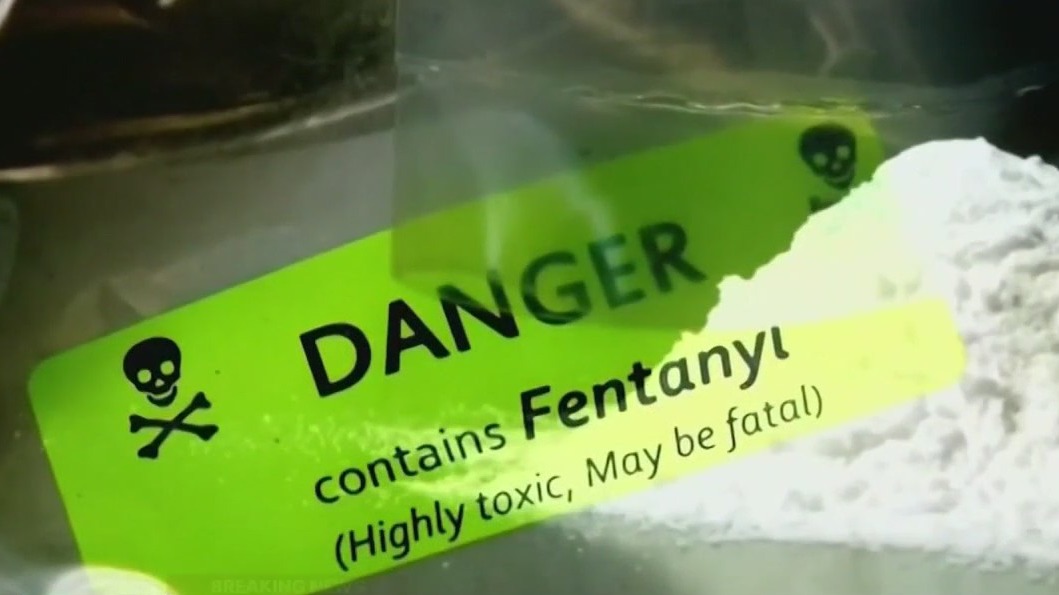Newsom sending National Guard to San Francisco to disrupt fentanyl trafficking

Newsom sending National Guard to San Francisco to disrupt fentanyl trafficking
San Francisco has struggled to stem its fentanyl crisis, prompting Gov. Gavin Newsom to direct the state National Guard and California Highway Patrol to join the citys efforts to fight fentanyl trafficking.
SAN FRANCISCO - San Francisco has struggled to stem its fentanyl crisis, prompting Gov. Gavin Newsom to direct the state National Guard and California Highway Patrol to join the city's efforts to fight fentanyl trafficking.
"Two truths can co-exist at the same time: San Francisco’s violent crime rate is below comparably sized cities like Jacksonville and Fort Worth — and there is also more we must do to address public safety concerns, especially the fentanyl crisis," said Newsom on Friday.
The state will expand its law enforcement presence around the city in hopes of mitigating crimes linked to the fentanyl epidemic and, hopefully, reducing the number of overdoses from the powerful synthetic opioid.
"Our Police Department and District Attorney have been partnering to tackle this issue and increase enforcement, but our local agencies can use more support," Mayor London Breed said in a statement. "With the Governor’s leadership and clear direction, our state enforcement agencies can partner with us to make a difference for our residents, businesses, and workers who are living with the impacts every day."

Advocacy group wants San Francisco action on drug sales and overdose crisis
A San Francisco advocacy group is calling on city leaders to take action to address the drug sales and overdose crisis on city streets. Allie Rasmus reports
State and local officials didn't provide specifics on how the additional resources will be distributed or what parts of the city are of grave concern. However, Newsom on Wednesday popped up in San Francisco's Tenderloin neighborhood before a meeting with city leaders on how to address the fentanyl crisis.
The Tenderloin is considered the epicenter of homelessness and drug use.
In late 2021, Mayor Breed issued a state of emergency for the Tenderloin in an effort reduce overdose deaths.

Mixed reaction to Newsoms partnership plan to address fentanyl in San Francisco
Governor Newsoms plan to partner with California Highway Patrol and the states National Guard to combat fentanyl trafficking in San Francisco is being met with mixed reactions.
Following this latest development, San Francisco Public Defender Manu Raju responded to Newsom's announcement. "No amount of law enforcement will solve what is really a public health crisis," Raju said in a statement. "We know from 50 years of the war on drugs that the people who are likely to be targeted by any forthcoming operations will be in low-income and Black and Brown communities, including those who have been trafficked or coerced into the drug trade under threat to themselves and their families."
Others, including SFPD Chief Bill Scott and D.A. Brooke Jenkins, were grateful for Newsom's announcement.
There was mixed reaction to the governor's plans in the Tenderloin.
Islam Natsheh lives and works in the Tenderloin as an ambassador promoting safety and cleanliness. He carries Narcan, the drug used to reverse fentanyl overdoses. He said he and others on his team see up to five drug overdoses a day. He saw Newsom in the neighborhood earlier this week. He welcomes a plan to address the drug problems, but has questions and concerns.
"I just don't know how exactly this emergency order would help," Natsheh said. "Are they going to be with uniforms? Guns? Are they going to be assisting the investigations into these drug activities?"
Natsheh said he's curious to see what it's going to look like with soldiers on the streets and if people who live and occupy the neighborhood will be receptive.
Jacqui Berlinn founded Mothers Against Drug Addiction and Deaths. She said her son Corey is addicted to fentanyl and living on the streets of San Francisco. Last year, her group put up billboards specifically asking the governor to shut down open-air drug markets. "I literally almost started crying," Berlinn said. "This is what my group has been working for for over a year. The fact that he's doing this, that he's putting resources into this effort is huge to me."
Elsewhere, Tenderloin residents and merchants we spoke with said they fear drug dealers will be released quickly after being arrested and then return to the area.
KTVU's Evan Sernoffsky and Amber Lee contributed to this report.

